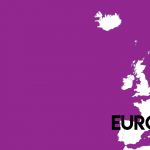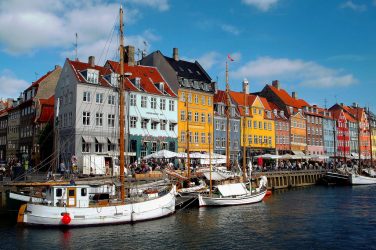Self-starters are a source of inspiration to us all; they are willing to take risks most are unwilling to take. But how easy is it to go at it alone? In Self-Starters, E&M talks to young start-ups and entrepreneurs to hear about their experiences and to introduce their businesses to a larger audience.
 Fashion is fun. It’s colourful. It’s increasingly affordable. But one thing it often isn’t, is sustainable. The ecommerce platform jesango wants to change that. jesango, that’s a team of young Germans committed to show that online shopping can be convenient, affordable – and green. With a passion for fair fashion and an interest in ecommerce, Catja, Alina, and Sophia found each other via an online network for start-up founders in early 2019. A year later, Alina left but Larissa joined the founder team. For E&M, Catja and Larissa sat down in front of their respective laptop screens and talked with us about fair fashion, sustainable start-ups, and why you shouldn’t trust green-washing.
Fashion is fun. It’s colourful. It’s increasingly affordable. But one thing it often isn’t, is sustainable. The ecommerce platform jesango wants to change that. jesango, that’s a team of young Germans committed to show that online shopping can be convenient, affordable – and green. With a passion for fair fashion and an interest in ecommerce, Catja, Alina, and Sophia found each other via an online network for start-up founders in early 2019. A year later, Alina left but Larissa joined the founder team. For E&M, Catja and Larissa sat down in front of their respective laptop screens and talked with us about fair fashion, sustainable start-ups, and why you shouldn’t trust green-washing.
E&M : First things first: What does ‘jesango’ stand for?
Catja: It is a made-up word from Esperanto. ‘jes’ means yes and ‘sango’ means change.
E&M : And what change are you saying yes to?
Catja: We want a world in which no one has to risk their life for fashion, where no one is exploited to produce the clothing we wear. We want more recycling, less consumption and less waste. Longer-lasting products. And no green-washing, so no companies labelling themselves as sustainable without actually doing the work. We want that terms like ‘conscious’ and ‘green’ actually mean something.
E&M : Questionable green-washing labels aside, if you had to choose four adjectives to describe jesango, which ones would that be?
Catja: jesango is a role model, we want to have an impact. It’s stylish. It’s cool, It’s young. It’s definitely transparent and honest.
Larissa: That was more than four.
Catja: I’d summarise and say ‘transparent, honest, stylish, impact-driven’.
E&M : And what is the impact that’s driving you?
Larissa: It should extend into all areas. First, it’s of course that we want fair fashion to ‘arrive’ in people’s closets, that’s no longer just a nice add-on, but that fair fashion becomes mainstream. That’s our grand vision. And that has a lot of consequences down the line, production chains need to become more transparent, working conditions better and the use of resources more sustainable.
E&M : But online shopping isn’t exactly known for being sustainable. How are you different?
Catja: It’s actually quite fascinating how online shopping has gotten such a bad reputation. Of course, with the big stores, it’s not sustainable. But, if you do online shopping right, if you watch out that you’re not shipping thousands of packages through the world, online shopping is more sustainable than going to a brick and mortar store. You don’t have all those additional transports, and there are many more factors. Fundamentally, online shopping can be done very sustainably.
E&M : And how do you do that?
Catja: Firstly, all the products we sell are sustainable, they’ve been shipped around less, their carbon footprint is smaller. Secondly, when you order through jesango, everything is sent in one package and we reuse packaging as much as possible. No plastic. No drop shipping.
Larissa: Plus, we don’t only have our customer-facing platform, we also do B2B: a green fulfillment service for fair fashion brands. We work together with a logistics partner who’s also committed to sustainability. This way, we want to be a fair fashion accelerator for the whole industry.

E&M : In the wake of COVID-19, online shopping has become even more popular. Have you experienced this, too?
Larissa: In the beginning, we definitely noticed that people had other things on their mind than fashion and shopping. But that changed, and in April we had one of our best months in terms of sales. The difficulty for us is that we all had to shift to working from home. That not only meant not seeing our colleagues, but meeting and onboarding new interns and colleagues completely online. This includes me – when I joined at the end of March, Catja and me had never met in person.
Catja: And, to support smaller labels throughout the crisis, we launched #supportlocals and gave them the option to sell their products over our website.
E&M : Which criteria does a brand have to fulfill to be able to sell on your platform?
Larissa: We have a whole process. Often, we’ve already met the brand at an industry event or through one of our existing partners. The next step is vetting. Every brand has to complete a review that is focused on a couple of key aspects: fair, climate-friendly, and sustainable production, and a transparent supply chain.
E&M : Those are the things fashion brands can do. But what about our consumers, what’s your advice for our readers to be more sustainable shoppers?
Larissa: The most important thing is to inform yourself. And then, it’s really not that hard. The cool thing about fair fashion is that the industry is growing incredibly quickly right now. Every day, a new label launches, and there is something for everyone and every style. And, whenever you need a new basic item, a t-shirt or underwear, get a sustainable product or buy second-hand.
Catja: With green-washing, it’s become difficult to tell which brands and products are genuinely sustainable. That’s why it is so important to educate yourself, as Larissa said. There’s no way around it. That’s also the reason why we founded jesango, because we were faced with the same dilemma: we wanted to shop more sustainably, but we also wanted to shop conveniently and affordably.
But, really, the challenge is, we also don’t want people to consume more. Rather, we say, if you need to buy something new, then try to make it fair and sustainable.
E&M : Apropos green-washing, what does it actually mean, to be a green company? Which advice would you give other start-ups to become more sustainable?
Catja: There is a vast network of other sustainable companies – use it. From fair-trade chocolate, to green camping toilets, there is a lot we can learn form each other. For us, we want our whole operations to be in line with our values, we work with a sustainable bank, everything in our office is second-hand, we don’t buy new furniture or supplies.
But it’s really important that we don’t point fingers or make people feel guilty. We’re not perfect either, you know, it’s about trying. Sometimes it can feel like you’re not doing enough. Indeed, when you choose this industry, you’re never doing enough. But that’s not true. It’s important to remember that you can do what’s important to you, at your own speed, and that’s a great starting point. Maybe you even start by supporting fair fashion.
Many thanks to Catja and Larissa. The interview has been edited for brevity and clarity.
Cover photo: Lauren Fleischmann (Unsplash), Unsplash licence









